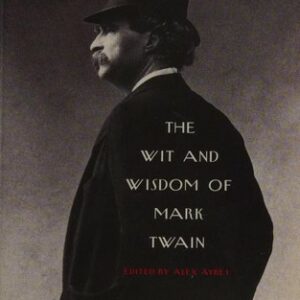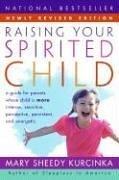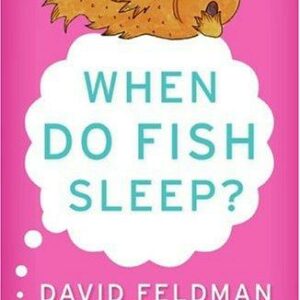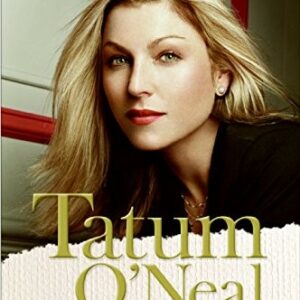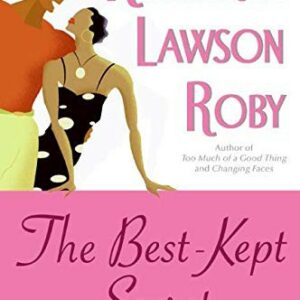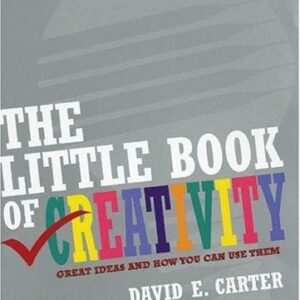Bunny
$21.00
| Title | Range | Discount |
|---|---|---|
| Trade Discount | 5 + | 25% |
- Description
- Additional information
Description
The Vegetarian meets Heathers in this darkly funny, seductively strange novel from the acclaimed author of 13 Ways of Looking at a Fat Girl
Samantha Heather Mackey couldn’t be more different from the other members of her master’s program at New England’s elite Warren University. A self-conscious scholarship student who prefers the company of her imagination to that of most people, she is utterly repelled by the rest of her fiction writing cohort–a clique of unbearably twee rich girls who call each other “Bunny,” and are often found entangled in a group hug so tight it seems their bodies might become permanently fused.
But everything changes when Samantha receives an invitation to the Bunnies’ exclusive monthly “Smut Salon,” and finds herself drawn as if by magic to their front door–ditching her only friend, Ava, an audacious art school dropout, in the process. As Samantha plunges deeper and deeper into Bunny world, and starts to take part in the off-campus “Workshop” where they devise their monstrous creations, the edges of reality begin to blur, and her friendships with Ava and the Bunnies are brought into deadly collision.
A spellbinding, down-the-rabbit-hole tale about loneliness and belonging, creativity and agency, and female friendship and desire, Bunny is the dazzlingly original second book from an author with tremendous “insight into the often-baffling complexities of being a woman” (The Atlantic).A Globe and Mail, Chatelaine, and Vancouver Sun Best Book of Summer
One of:
CBC’s “Most Anticipated Books of Summer”
NOW‘s “Most Anticipated Books of Summer”
Loan Star‘s “Best of June”
Glam’s “15 Spooky Reads To Get Into The Halloween Spirit”
Electric Literature’s “10 Books that Celebrate Feral Girls”
“O Bunny you are sooo genius!”
—Margaret Atwood, via Twitter
“Bunny is a curioser Wonderland where vicious, rabidly entitled artists mix hare-brained potions, where sweet bunnies are terrifying swains, and where literature’s newest and sexiest hybrid lurks. Hilarious and creepy with dead-on satire: I cannot think of a new book I like more.”
—Lynn Crosbie
“Every time I open it up, I stumble upon a crackling sentence.”
—The New York Times
“Mona Awad’s precision is only matched by her wit as she mounts one of the most pristine, delightful attacks on popular girls since Clueless. Bunny made me cackle and nod in terrified recognition. You will be glued to your cashmere blanket.”
—Lena Dunham, author of Not That Kind of Girl
“Prepare to go down the rabbit hole withthis weird and wonderful book.”
—The Globe and Mail
“Gripping [and] frenetically readable . . .In this exploration of how women’s repressed rageand desires can manifest, Awad weaponizescuteness in a ferocious and dynamic way.”
—Quill and Quire, STARRED REVIEW
“Like one of those razors marketed to women: you know, pink but still GD dangerous.”
—Elle
“Bunny is a kind of pastel-toned goth lit, an examination of what happens when ‘soft’ femininity meets the tougher kind—but one that also recognizes how blurry the distinction can be . . . This isn’t your garden-variety–or even your rabbit-hutch–view of feminist sisterhood . . . It’s a spiritual cousin to Stephen King’s Carrie.”
—TIME
“Mona Awad lets femininity bare its fangs.”
—Toronto Star
“To call this a dark comedy undersells the richness of its message, and to say it’s a satire misses its realism. Bunny is so sharp it will leave you bloody.”
—Vulture
“A viciously funny bloodbath . . . Awad gleefully pumps up the novel’s nightmarish quality until the boundary between perception and reality has all but dissolved completely. It’s clear that Awad is having fun here—the proof is in the gore—and her delight is contagious . . . Wickedly sharp . . . A near-perfect realization of a singular vision.”
—Kirkus, STARRED REVIEW
“Outstanding . . . highly addictive, darkly comedic . . . Awad will have readers racing to find out how it all ends—and they won’t be disappointed once the story reaches its wild finale. This is an enchanting and stunningly bizarre novel.”
—Publishers Weekly, STARRED REVIEW
“Awad has proved herself one of the most innovative and original authors out there, and Bunny is a wild, audacious and ultimately unforgettable novel.”
—Los Angeles Times
“A work of toothsome and fanged intelligence.”
—The New Yorker
“Deliciously evil . . . Awad is a stone-cold genius.”
—The Washington Post
“The Secret History meets Jennifer’s Body. This brilliant, sharp, weird book skewers the heightened rhetoric of obsessive female friendship in a way I don’t think I’ve ever seen before. I loved it and I couldn’t put it down.”
—Kristen Roupenian, author of “Cat Person” and You Know You Want This
“Hilarious and subversive, magical and knife-sharp. This novel—a send-up of academia, an astute exploration of class in creative circles, and an ode to the uncanny power of art—confirms Mona Awad as one of our great chroniclers of what it means to be alive right now. Bunny is a stunner.”
—Laura van den Berg, author of The Third Hotel
“It is not an exaggeration to say that I devoured Bunny—teeth, fur, claws and all. Mona Awad has written a truly delectable novel that is equal parts wit, fancy, and wickedness. Unafraid to challenge some sacrosanct notions about women artists, female friendship, and writing, her book is a compulsively readable testament to the sheer creative force of loneliness and longing.”
—Sarah Shun-lien Bynum, author of Miss Hempel Chronicles
“Very funny and very sharp . . . An extremely readable page-turner.”
—NPR’s “Weekend Edition”
“[One of] the most cerebral and compulsively readable books of the season . . . This compelling novel about a mysterious grad school clique draws a bit of inspiration from Mean Girls or Heathers…before long, the novel takes a turn into the surreal, applying the logic of a horror movie to its incisive exploration of cruelty between young women.”
—Vanity Fair
“Vivid [and] gripping . . . What makes it memorable, and powerful, is the coupling of its go-for-broke sendup with an immense compassion . . . For all its dagger-sharpness, Bunny has a tenderly accommodating heart.”
—The Boston Globe
“It’s creepy and it’s kooky, mysterious and spooky, and you will not be able to put it down.”
—The Washington Post
“A surreal, darkly funny take on art, power, and female friendships.”
—Entertainment Weekly
“Exquisitely precise [and] funny as hell.'”
—The Boston Globe
“The weirdest novel you’ll read this year . . . in the best way possible…With hints of Heathers and Mean Girls, I read Bunny in one night and was genuinely bummed when it was over.”
—Cosmopolitan
“[A] dizzying tale of misandry, class anxiety, and psychological torment . . . Fans of sinister girl gangs, take heart!”
—Harper’s Bazaar
“A dark, twisted novel that sharply interrogates women’s relationships to one another and to art, academia, and class—it’s the kind of book that leaves a taste in your mouth, the taste of blood. Who knew that would taste so good?”
—Nylon
“Mona Awad’s prose is dangerous. She crafts beautiful meals laced with poison.”
—The Paris Review
“With notes of Scream Queens and Heathers, Bunny takes readers into a twisted, terrifying cabal.” —Newsweek
“[Bunny] quickly ascends to a Heathers level of camp without losing its grip on emotional reality . . . the struggle, shame, and frustration of making art rings true . . . enjoyable, insightful [and] compulsively readable.”
—Ploughshares
“Awad’s genius lies in her ability to take a familiar setup and turn it on its head—and then shake it and throw it off a cliff. That’s how twisted Bunny gets.”
—Purewow
“Tall, dark and culty.”
—TheSkimm
“If you’ve ever been the odd one out, read Bunny.”
—Refinery29
“[A] riotous, pitch-black novel . . . [Awad’s] sheer panache powers you through the hilarious, hallucinogenic freakery.”
—The Daily Mail
“Gripping [and] unique.”
—InStyle
“The Secret History meets Heathers with a dash of Mean Girls. You’re gonna love it.”
—HelloGiggles
“[A] clever, contemplative, truly absurd campus novel that manages to strike to the truth of things with a hot blade of magic.”
—LitHub
“[Awad] has a wicked sense of humor . . . The energy in her writing is truly infectious, and it’s a lot of fun to go with her down the rabbit hole.”
—Washington Independent Review of Books
“Bunny is the lovechild of Otessa Moshfegh’s Eileen and Donna Tartt’s The Secret History after a chance meeting at a midnight showing of Heathers . . . Dark but hilarious, quirky yet insightful, and at times just flat out weird, Bunny is the perfect anti-beach read for those of us who spend summer dreading the outside, opting to stay in burning scented candles with our curtains drawn and our white noise machine set to ‘thunder storm.'”
—Napa Valley Register
“[A] riveting and often funny tale about the dark side of female seduction.”
—Pittsburgh Post-Gazette
“Social acceptance, female friendship, the coming-of-age process . . . it’s all ripe for the discussion here.”
—Bustle
“Astonishingly self-assured…Awad’s writing is somehow both gorgeous and gritty as she explores creativity, art and the universal desire to belong.”
—BookPage
“Sharp and utterly bonkers; think Heathers gone to grad school.”
—Booklist
“A dark, dazzling fairy tale . . . A touching story of true-versus-faux friendship that many women will relate to is at the heart of this novel, but fans of the occult will find plenty to love about the Bunnies’ sci-fi-adjacent ritual experimentation. As if grad school needed to get any scarier.”
—Vogue, “The Best Novels of 2019”
“Strange, gothic and viciously entertaining.”
—The Irish Times
“The Vegetarian meets Carrie meets Mean Girls in this deliciously dark tale about toxic female friendships, academia and class.”
—BookRiot, “7 of the Buzziest Beach Reads of the Year”
“A highly original, dark, gothic novel, at once exuberantly weird and extremely funny”.
—The Bookseller
“A brilliant, utterly unique peek into the dark side of female friendship.”
—Sunday Independent (UK)
“[A] dark story that defies categorization.”
—Library JournalMONA AWAD is the author of Bunny, named a Best Book of 2019 by Time, Vogue, and the New York Public Library. It was a finalist for the New England Book Award and a Goodreads Choice Award for Best Horror. It is currently under option for film with Bad Robot Productions. Awad’s first novel, 13 Ways of Looking at a Fat Girl, was a finalist for the Scotiabank Giller Prize and winner of the Colorado Book Award. Her third novel, All’s Well, was longlisted for the International Dublin Award and was a finalist for a Goodreads Choice Award for Best Horror. Rouge is currently optioned for film by Fremantle and Sinestra. She teaches in the creative writing program at Syracuse University and is based in Boston. 1.
We call them Bunnies because that is what they call each other. Seriously. Bunny.
Example:
Hi, Bunny!
Hi, Bunny!
What did you do last night, Bunny?
I hung out with you, Bunny. Remember, Bunny?
That’s right, Bunny, you hung out with me and it was the best time I ever had.
Bunny, I love you. I love you, Bunny.
And then they hug each other so hard I think their chests are going to implode. I would even secretly hope for it from where I sat, stood, leaned, in the opposite corner of the lecture hall, department lounge, auditorium, bearing witness to four grown women—my academic peers—cooingly strangle each other hello. Or good‑bye. Or just because you’re so amazing, Bunny. How fiercely they gripped each other’s pink‑and‑white bodies, forming a hot little circle of such rib‑crushing love and understanding it took my breath away. And then the nuzzling of ski‑jump noses, peach fuzzy cheeks. Temples pressed against temples in a way that made me think of the labial rubbing of the bonobo or the telepathy of beautiful, murderous children in horror films. All eight of their eyes shut tight as if this collective asphyxiation were a kind of religious bliss. All four of their glossy mouths making squealing sounds of monstrous love that hurt my face.
I love you, Bunny.
I quietly prayed for the hug implosion all year last year. That their ardent squeezing might cause the flesh to ooze from the sleeves, neckholes, and A‑line hems of their cupcake dresses like so much inane frosting. That they would get tangled in each other’s Game of Thrones hair, choked by the ornate braids they were forever braiding into each other’s heart‑shaped little heads. That they would choke on each other’s blandly grassy perfume. Never happened. Not once.
They always came apart from these embraces intact and unwounded despite the ill will that poured forth from my staring eyes like so much comic-book‑villain venom. Smiling at one another. Swinging clasped hands. Skins aglow with affection and belonging as though they’d just been hydrated by the purest of mountain streams.
Bunny, I love you.
Completely immune to the disdain of their fellow graduate student. Me. Samantha Heather Mackey. Who is not a Bunny. Who will never be a Bunny.
I pour myself and Ava more free champagne in the far corner of the tented green, where I lean against a white Doric pillar bedecked with billowing tulle. September. Warren University. The Narrative Arts department’s annual welcome back Demitasse, because this school is too Ivy and New England to call a party a party. Behold the tigerlily‑heavy centerpieces. Behold the Christmas‑lit white gauze floating everywhere like so many ghosts. Behold the pewter trays of salmon pinwheels, duck‑liver crostini topped with little sugared orchids. Behold the white people in black discussing grants they earned to translate poets no one reads from the French. Behold the lavish tent under which the overeducated mingle, well versed in every art but the one of conversation. Smilingly oblivious to the fact that they are in the mouth of hell. Or as Ava and I call it, the Lair of Cthulhu. Cthulhu is a giant squid monster invented by a horror writer who went insane and died here. And you know what, it makes sense. Because you can feel it when you’re walking down the streets beyond the Warren Bubble that this town is a wrong town. Something not quite right about the houses, the trees, the light. Bring this up and most people just look at you. But not Ava. Ava says, My god, yes. The town, the houses, the trees, the light—it’s all fucked.
I stand here, I sway here, full of tepid sparkling and animal livers and whatever hard alcohol Ava keeps pouring from her Drink Me flask into my plastic cup. “What’s in this again?” I ask.
“Just drink it,” she says.
I observe from behind borrowed sunglasses as the women whom I must call my colleagues reunite after a summer spent apart in various trying locales such as remote tropical islands, the south of France, the Hamptons. I watch their fervent little bodies lunge for each other in something like rapture. Nails the color of natural poisons digging into each other’s forearms with the force of what I keep telling myself is feigned, surely feigned, affection. Shiny lips parting to call each other by their communal pet name.
“Jesus, are they for real?” Ava whispers in my ear now. She has never seen them up close. Didn’t believe me when I first told her about them last year. Said, There is no way grown women act like that. You’re making this up, Smackie. Over the summer, I started to think I had too. It is a relief in some ways to see them now, if only to confirm I am not insane.
“Yes,” I say. “Too real.”
I watch her survey them through her fishnet veil, her David Bowie eyes filled with horror and boredom, her mouth an unimpressed red line.
“Can we go now?”
“I can’t leave yet,” I say, my eyes still on them. They’ve pulled apart from one another at last, their twee dresses not even rumpled. Their shiny heads of hair not even disturbed. Their skins glowing with health insurance as they all crouch down in unison to collectively coo at a professor’s ever jumping shih tzu.
“Why?”
“I told you, I have to make an appearance.”
Ava looks at me, slipping drunkenly down the pillar. I have said hello to no one. Not the poets who are their own fresh, grunty hell. Not the new incoming fiction writers who are laughing awkwardly by the shrimp tower. Not even Benjamin, the friendly administrator to whom I usually cling at these sorts of functions, helping him dollop quivering offal onto dried bits of toast. Not my Workshop leader from last spring, Fosco, or any other member of the esteemed faculty. And how was your summer, Sarah? And how’s the thesis coming, Sasha? Asked with polite indifference. Getting my name wrong always. Whatever response I offer—an earnest confession of my own imminent failure, a bald‑faced lie that sets my face aflame—will elicit the same knowing nod, the same world‑weary smile, a delivery of platitudes about the Process being elusive, the Work being a difficult mistress. Trust, Sasha. Patience, Sarah. Sometimes you have to walk away, Serena. Sometimes, Stephanie, you have to seize the bull by the horns. This will be followed by the recounting of a similar creative crisis/breakthrough they experienced while on a now‑defunct residency in remote Greece, Brittany, Estonia. During which I will nod and dig my fingernails into my upper‑arm flesh.
And obviously I haven’t talked to the Lion. Even though he’s here, of course. Somewhere. I saw him earlier out of the corner of my eye, more maned and tattooed than ever, pouring himself a glass of red wine at the open bar. Though he didn’t look up, I felt him see me. And then I felt him see me see him see me and keep pouring. I haven’t seen him since then so much as sensed him in my nape hair. When we first arrived, Ava felt he must be nearby because look, the sky just darkened out of nowhere.
This evening, all I have done in terms of socializing is half smile at the one the Bunnies call Psycho Jonah, my social equivalent among the poets, who is standing alone by the punch, smiling beatifically in his own antidepressant‑fueled fever dream.
Ava sighs and lights a cigarette with one of the many tea lights that dot our table. She looks back at the Bunnies, who are now stroking each other’s arms with their small, small hands. “I miss you, Bunny,” they say to each other in their fake little girl voices, even though they are standing right fucking next to each other, and I can taste the hate in their hearts like iron on my tongue.
“I miss you, Bunny. This summer was so hard without you. I barely wrote a word, I was so, so sad. Let’s never ever part again, please?”
Ava laughs out loud at this. Actually laughs. Throws her feathery head back. Doesn’t bother to cover her mouth with her gloved hand. It’s a delicious, raucous sound. Ringing in the air like the evening’s missing music.
“Shhhhh,” I hiss at her. But it’s already done.
The laughter causes the one I call the Duchess to turn her head of long, silver faery‑witch locks in our direction. She looks at us. First at Ava. Then at me. Then at Ava again. She is surprised, perhaps, to see that for once I’m not alone, that I have a friend. Ava meets her look with wide‑open eyes the way I do in my dream stares. Ava’s gaze is formidable and European. She continues to smoke and sip my champagne without breaking eye contact. She once told me about a staring contest she had with a gypsy she met on a metro in Paris. The woman was staring at her, so Ava stared back—the two of them aiming their gazes at each other like guns—all the way across the City of Lights. Just looking at each other from opposite shores of the rattling train. Eventually Ava took off her earrings, still not taking her eyes off the woman. Why? Because her assumption at that point, of course, was that the two of them would fight to the death. But when the train pulled into the last stop on the line, the woman just stood to exit, and when she did so, she even held back the sliding doors politely, so Ava could go first.
What’s the lesson here, Smackie? Don’t jump to conclusions?
Never lower your gaze first.
The Duchess, in turning toward us, causes a ripple effect of turning among the other Bunnies. First Cupcake looks over. Then Creepy Doll with her tiger eyes. Then Vignette with her lovely Victorian skull face, her stoner mouth wide open. They each look at Ava, then at me, in turn, scanning down from our heads to our feet, their eyes taking us in like little mouths sipping strange drinks. As they do, their noses twitch, their eight eyes do not blink, but stare and stare. Then they look back at the Duchess and lean in to each other, their lip‑glossed mouths forming whispery words.
Ava squeezes my arm, hard.
The Duchess turns and arches an eyebrow at us. She raises a hand up. Is there an invisible gun in it? No. It’s an empty, open hand. With which she then waves. At me. With something like a smile on her face. Hi, her mouth says.
My hand shoots up of its own accord before I can even stop myself. I’m waving and waving and waving. Hi, I’m saying with my mouth, even though no sound comes out.
Then the rest of the Bunnies hold up a hand and wave too.
We’re all waving at one another from across the great shores of the tented green.
Except Ava. She continues to smoke and stare at them like they’re a four‑headed beast. When at last I lower my hand, I turn to her. She’s looking at me like I’m something worse than a stranger.US
Additional information
| Weight | 8.8 oz |
|---|---|
| Dimensions | 0.6900 × 5.4800 × 8.1700 in |
| Imprint | |
| Format | |
| ISBN-13 | |
| Author | |
| Audience | |
| BISAC | |
| Subjects | writing books, feminist books, booktok books, horror books, gift for sister, metamorphosis, book club reads, FIC060000, bunny books, tiktok books, writing gifts, mean girls, sister gifts, bunny book, cults, providence, new fiction, ivy league, gift for best friend, bunny mona awad, Brown University, booktok, horror, fiction, fairy tales, humor, new england, novels, FIC010000, graduation gifts, women's fiction, funny books, magic, rabbit, bunny, bunnies, literary fiction, rabbits, book club recommendations, book club picks, dark academia, Rhode Island |


